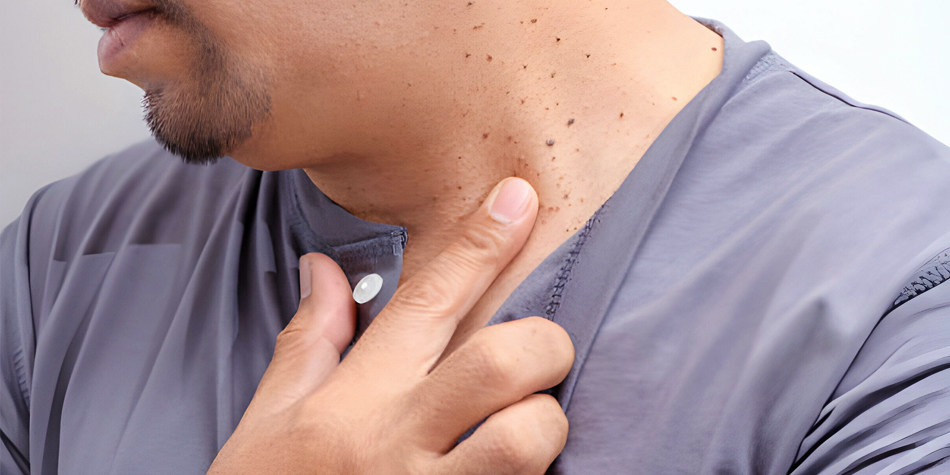Working Time
Working Time
| Mon-Thu | 09:00 AM - 6:00 PM |
| Friday | 09:00 AM - 6:00 PM |
| Saturday | 09:00 AM - 2:00 PM |
| Sunday | Closed |
Request Form
Request Form
Emergency Contact
Emergency Contact
+
Get Consultation
Skin Growths

Understanding Skin Growths
Skin growths are common dermatological conditions that can appear on the surface of the skin due to various factors. While many skin growths are harmless, some may require medical attention or treatment. At [Your Dermatology Clinic], we provide comprehensive services for the diagnosis, treatment, and management of various types of skin growths.
Types of Skin Growths
- Moles (Nevi): Moles are clusters of pigmented cells that appear as dark spots on the skin. While most moles are benign, changes in size, shape, color, or texture should be evaluated by a dermatologist.
- Skin Tags: Skin tags are small, soft, benign growths that commonly occur in areas where skin rubs against skin or clothing, such as the neck, armpits, and groin.
- Warts: Warts are caused by the human papillomavirus (HPV) and can appear anywhere on the body. They are characterized by rough, raised growths and can be contagious.
- Seborrheic Keratoses: Seborrheic keratoses are non-cancerous growths that appear as waxy, scaly patches on the skin, often with a brown or black coloration.
- Cysts: Cysts are fluid-filled sacs that can develop beneath the skin's surface. They may be caused by infection, clogged oil glands, or other factors.
- Actinic Keratoses: Actinic keratoses are precancerous growths that appear as rough, scaly patches on sun-exposed areas of the skin. They can progress to skin cancer if left untreated.
Causes of Skin Growths:
- Genetics: Some skin growths, such as moles and cysts, may have a genetic predisposition and tend to run in families.
- Sun Exposure: Prolonged exposure to ultraviolet (UV) radiation from the sun can increase the risk of developing certain types of skin growths, such as actinic keratoses and seborrheic keratoses.
- Hormonal Changes: Hormonal fluctuations during pregnancy, puberty, or menopause can contribute to the development of skin growths, such as skin tags and seborrheic keratoses.
- Viral Infections: Viruses like HPV can cause the formation of warts, which are contagious and can spread to other areas of the body or to other individuals through direct contact.
Treatment Options
- Observation: In many cases, benign skin growths may not require treatment unless they become symptomatic or cosmetically bothersome.
- Cryotherapy: Freezing the growth with liquid nitrogen can be an effective treatment for warts, actinic keratoses, and other small skin lesions.
- Topical Medications: Certain topical medications or creams may be prescribed to treat precancerous lesions or to alleviate symptoms associated with skin growths.
Consultation and Evaluation
If you have concerns about skin growths or would like to have them evaluated by a dermatologist, we encourage you to schedule a consultation with us. We will provide a thorough evaluation, discuss treatment options, and develop a personalized plan tailored to your needs and concerns.
Contact us today to schedule your appointment and take the first step towards healthier, clearer skin.



